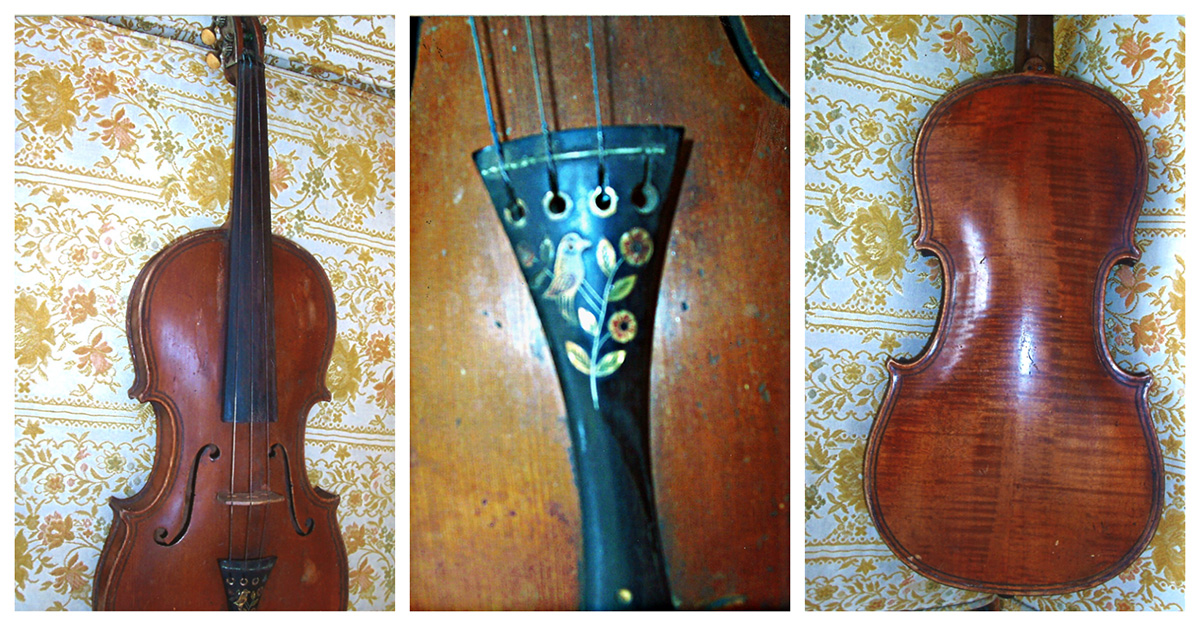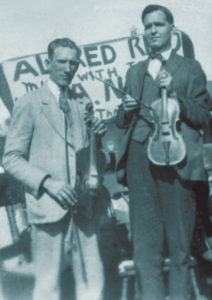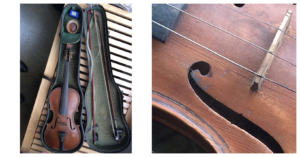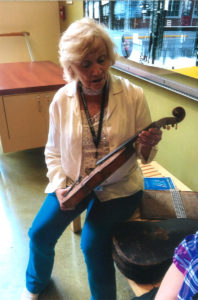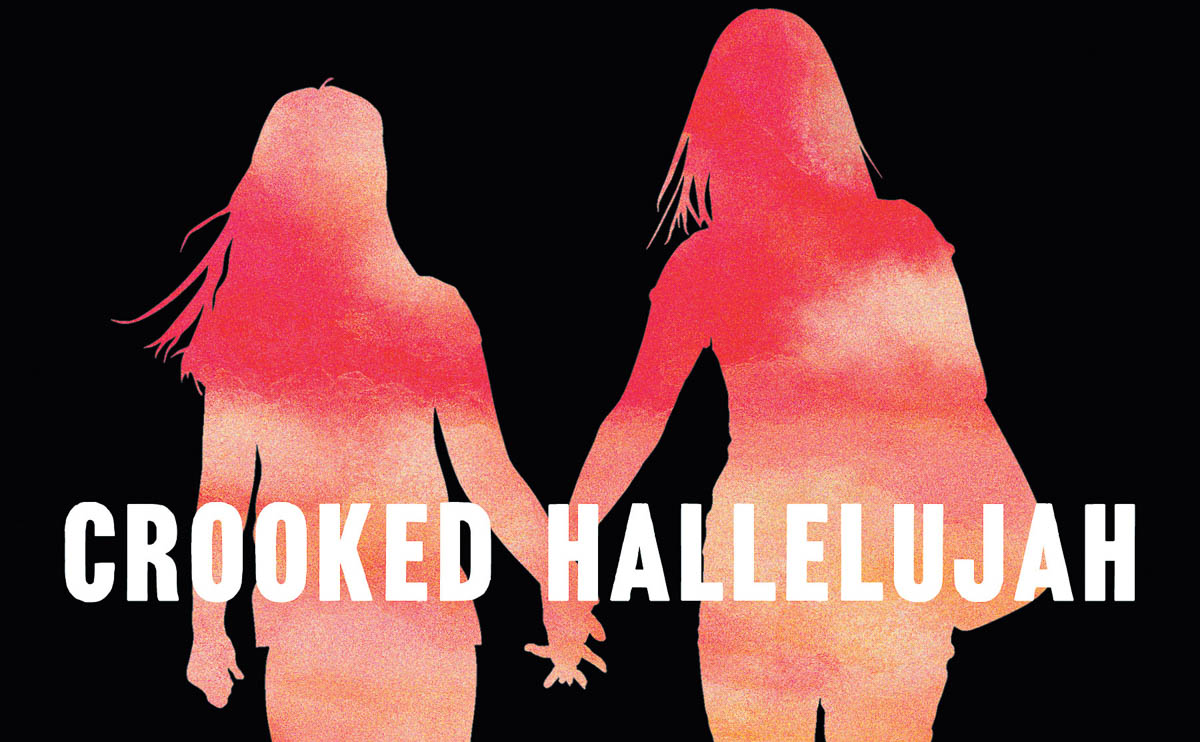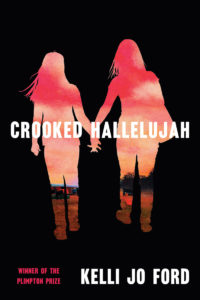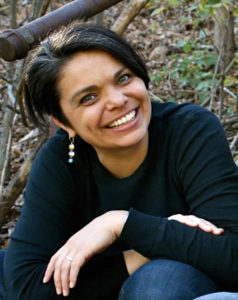Radio Bristol is proud to offer a platform to local and regional artists who are often underrepresented on a national level yet deserving of that audience. In expanding upon Radio Bristol’s core mission, we are pleased to bring you our latest Radio Bristol Spotlight post. This blog series highlights top emerging artists in our region – through interviews and performance, we learn more about the musicians who help to make Central Appalachia one the richest, and most unique musical landscapes in the world.
Recently at the Radio Bristol studio, we hosted the newly re-formed duo The Willy Nillys, comprised of the easygoing road warrior couple, Christy Lynn Barrett and Ryan Schilling. Currently based in Asheville, North Carolina, the two have been hitting the highway on multiple DIY cross-country road trips for the better part of a decade, playing dive bars and open mics sprawled across sleepy countryside towns. Their long musical journey has incorporated multiple converted vans or other “assorted vintage vehicles,” nights spent everywhere from sketchy Walmart parking lots to majestic National Forests, self-recorded albums with hand-cut vinyl, and a menagerie of analog audio gear including the 1987 Ford Econoline known as the American Sound Truck, which houses a direct to vinyl recording studio.
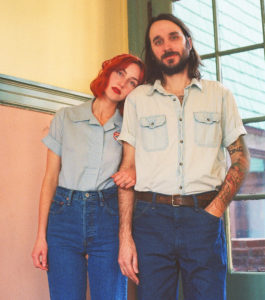
The Willy Nillys’ Christy Barrett and Ryan Schilling pose in unquestionably classy denim on denim attire. Photo Credit: Izzy Nelson
The dream-manifesting pair grew up in small dusty desert towns in Southern California, home to mystic cowboys such as Gram Parsons and creative origin for the legendary Laurel Canyon folk music scene of the 1960s and 1970s. Meeting by happenstance at a late night party, Barrett and Schilling quickly began writing music together, delving ever deeper into musical influences that lead them to the rich soils of Appalachia. Nowadays the couple own and run American Vinyl Co., a one-stop shop for everything from custom lathe-cut vinyl records, record mastering/pressing, direct-to-lacquer recording, live musical performances, a record shop, and a well-curated collection of historical audio equipment – all located in a beautifully renovated 1940s warehouse on the South Slope near downtown Asheville. To fully grasp the breadth of everything that happens at American Vinyl Co., we highly suggest going there for a visit – you can order from their “menu,” which includes recording a single inside the sound truck, or you can check out a show where they host an impressive variety of emerging roots music and Americana acts. You can check out their event schedule here.
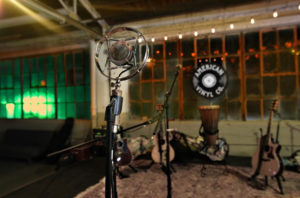
American Viny Co. Stage located just outside of downtown Asheville in the “Brewery District” of South Slope.
This industrious duo also still finds time to crank out inspiring original music, amidst refurbishing retro musical equipment and pressing loads of vinyl records for independent artists. Their latest iteration as The Willy Nillys is the third progression of their musical brainchild. Past projects have included the Christy Lynn Band, which is heavily inspired by Barrett’s lifelong love of classic country, and Triumph of the Wild, which won the couple first place for best recording at the San Diego Music Awards and began their relentless pilgrimage to musical sites of inspiration throughout the rural south. In the Radio Bristol studio, we got to witness a few of their brand new songs and talk about new recording projects on the horizon.
Starting out they played a tune called “American Daydream,” a hopeful yet rugged romp accented by cinematic swells of harmonica and hair-raising vocal harmonies. The lyrics seem to recount their idyllic but at times dangerous and unglamorous experience as OG van lifers – living off of sink showers and hints of Ola Belle Reed melodie,; learning how to befriend locals, and staying out of trouble with local police. The chorus proclaims “Livin our life like we wanted to…In an American Daydream with you,” ending with the road-weary affirmation: “A couple beggars, a couple of crooks, A couple of nobodies you overlooked…There ain’t a risk we ain’t never took.” This band is definitely for lovers of Shovels and Rope, The Everly Brothers, and 1950s pop employing powerhouse vocals and swishing echo-like back beats.
They also shared a somber number, “It Ain’t Fair,” a tune with a lilting melody that felt reminiscent of classic country balladry. The song slowly gallops along with regretful lyrics that recount sacrifices made as traveling songwriters – missing their nephews grow up and their parents aging. The stoic beauty and honesty of this song will leave a lump in your throat and tears in your eyes, with the last verse admitting:
“To my two sisters, I’ve been meaning to call
It breaks my heart knowing, I don’t know you at all
So I’ll pack my suitcase and I’ll go back in time
Back before a song was always on my mind.”
This is a band that is definitely worth checking out – so be sure to keep your eyes peeled for a new EP coming from them this summer, one that is sure to be self-produced and released with hand-pressed vinyl from American Vinyl Co.
Check out The Willy Nillys playing “It Ain’t Fair” live in the Radio Bristol studio.
Ella Patrick is a Production Assistant at Radio Bristol. She also hosts Folk Yeah! on Radio Bristol and is a performing musician as Momma Molasses.



